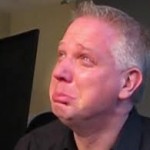I  was glad to see that Bruce linked to the fascinating debate on the nature of legal education prompted by Brent Newton’s article claiming that law professors “preach” what they don’t “practice.” I’ll comment later, although my general view, as someone who has much more practice experience than the typical full time legal academic, I think its an issue that is often drawn too starkly and that requires a nuanced response.
was glad to see that Bruce linked to the fascinating debate on the nature of legal education prompted by Brent Newton’s article claiming that law professors “preach” what they don’t “practice.” I’ll comment later, although my general view, as someone who has much more practice experience than the typical full time legal academic, I think its an issue that is often drawn too starkly and that requires a nuanced response.
But today I want to talk about Law & Theology (10 am on Friday mornings in 204 for anyone who wants to add a seminar) and Glen Beck. Newton argues that law schools overemphasize “theoretical, increasingly interdisciplinary scholarship” and courses. But Glen Beck has put law (0r at least politics) and theology smack into the middle of the public debate. In this fallen world, we may have to take that where we can find it.
I am not a Beck fan and I don’t watch his show, but he does have this penchant for raising interesting issues, even as he oversimplifies and often misstates them. (Kind of like a student who spots the issue but, even if she gets the result right, flubs it.) For example, President Obama’s roots in, and return to, classical Progressivism and the impact that it has had – or would have – on our public life is an important issue (although Beck’s characterization of Woodrow Wilson as the worst person of all time is loopy). I even wrote about in a recent symposium in the University of St. Thomas Law Journal.
Lately, Beck’s into liberation theology – something that he attributes to President Obama and thinks is a bad – even an evil – thing. (For another view, look here.)
I don’t know what the President thinks about liberation theology, but I think its narrative of Christ as a liberator and its emphasis on the unmistakable solicitude for the poor in the Gospels raises important challenges, including challenges for conservative Christians. I would argue that liberation as a narrative has its weaknesses and dangers and I might even agree that some of the uses of liberation theology have been gruesomel, but the questions it raises are important – even if I don’t expect them to be discussed well on the Glen Beck show.

If one makes an effort to understand Beck’s own theological views, he reveals himself as someone a bit bizarre.
A Roman Catholic convert to Mormonism, Beck is more than anything else a disciple of the late Mormon conspiracy theorist, W. Cleon Skousen (1913-2006).
Skousen,a Mormon and former FBI agent turned theologian, was an enthusiastic supporter of the John Birch Society. Religously, he embraced an extreme version of Mormon eschatology which envisioned Jesus as a man of violence whose anti-communist crusade was the proper project of all patriotic Americans.
By the end of his career both the LDS Church and the right wing intelligensia had distanced themself from the Communist obsessed Skousen.
Skousen was forced out of his position as a part-time Professor of Religion at Brigham Young University in 1978, and the following year Mormon Churches were prohibited from endorsing Skousen’s views or the projects of organizations that he led.
Even in the Goldwater movement, Skousen was viewed as a dangerous crank. The FBI file on his activities ran to more than 2,000 pages, and he was expelled from a number of anti-communist organization because “he had gone off the deep end.” An artice published in National Review shortly after Skousen’s death labelled him “a right wing nut job” and (The same article also pointed to the connection between Skousen and Mitt Romney, who was one of Skousen’s students at BYU and who continued to profess his admiration for Skousen until some point during the 2008 presidential nomination campaign.)
Beck has never shied away from his enthusiasm for Skousen whose works he frequently promotes on his radio and television shows. However, Beck simply presents Skousen as someone who emphasizes the religious roots of the American constitutional experiment, and few of Beck’s followers have bothered to look into the true character of his views.
It is hardly surprising that neither Skousen nor Beck would be a fan of liberation theology, since the latter is based on the teaching of Jesus as recorded in the synoptic gospels. Such teachings are no where mentioned in the work of Skousen and his disciples.